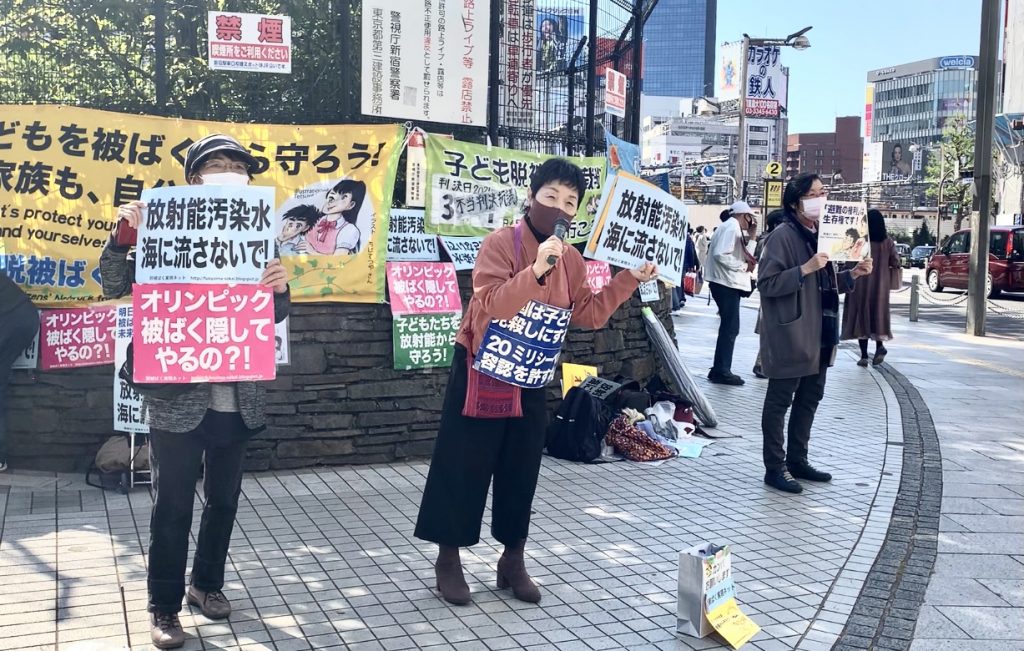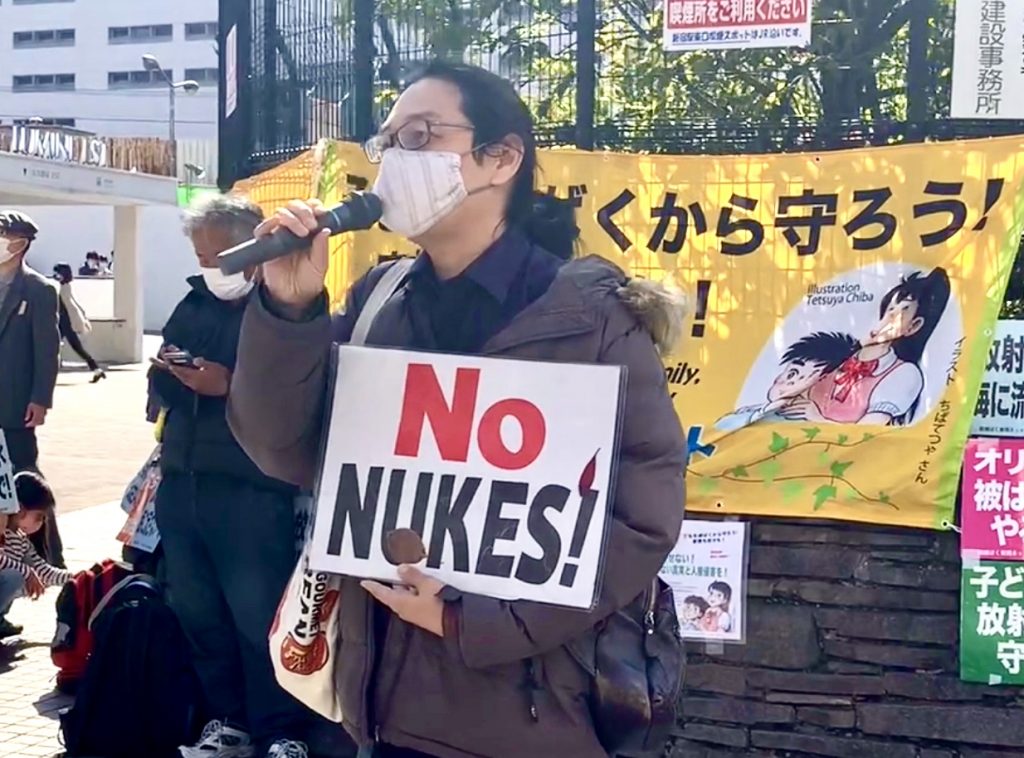



Arab News Japan
TOKYO: In the busy shopping and entertainment district of Shinjuku, advertisements encourage residents of the capital to take a break in the Fukushima area, but citizens of Fukushima and their supporters are still protesting “government actions that threaten the environment around the stricken Daiichi nuclear power plant.
A number of citizens gathered outside Shinjuku Station on Saturday to protest the decision to release contaminated water into the ocean. The water is polluted by radioactive tritium.
Since the Fukushima nuclear accident 10 years ago, cooling water from the damaged reactors has leaked into the foundations of the Daiichi nuclear power plant. Plant operator Tepco has stored the water in tanks and attempted to filter out the radioactive elements. However, tritium remains.
The Japanese government has repeatedly tried to announce the disposal of the contaminated water but has changed its mind due to opposition from citizens, fishermen and protests from other countries.
The government has hinted that the Prime Minister will announce the release of the water into the Pacific Ocean on April 13, a move that protesters say will contaminate ocean life and the food chain.
During the demonstration on Saturday, parents said they were worried that if their children eat fish from the Fukushima region, they could get sick.
A mother of two said that instead of releasing the water from the Fukushima power plant in the Tohoku region, they should release it into Tokyo Bay. That, she said, might prompt a different reaction from Tokyo-based lawmakers.